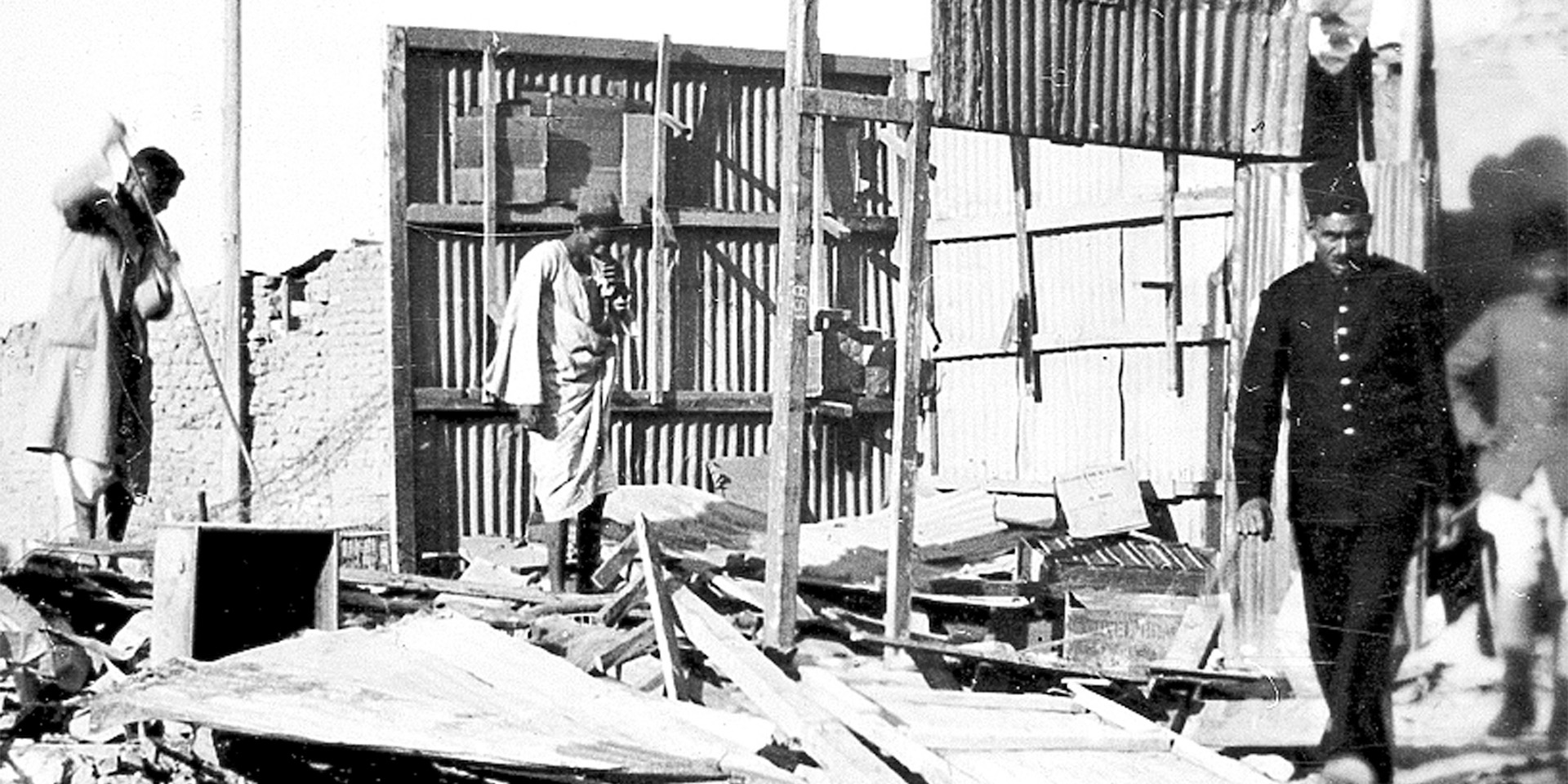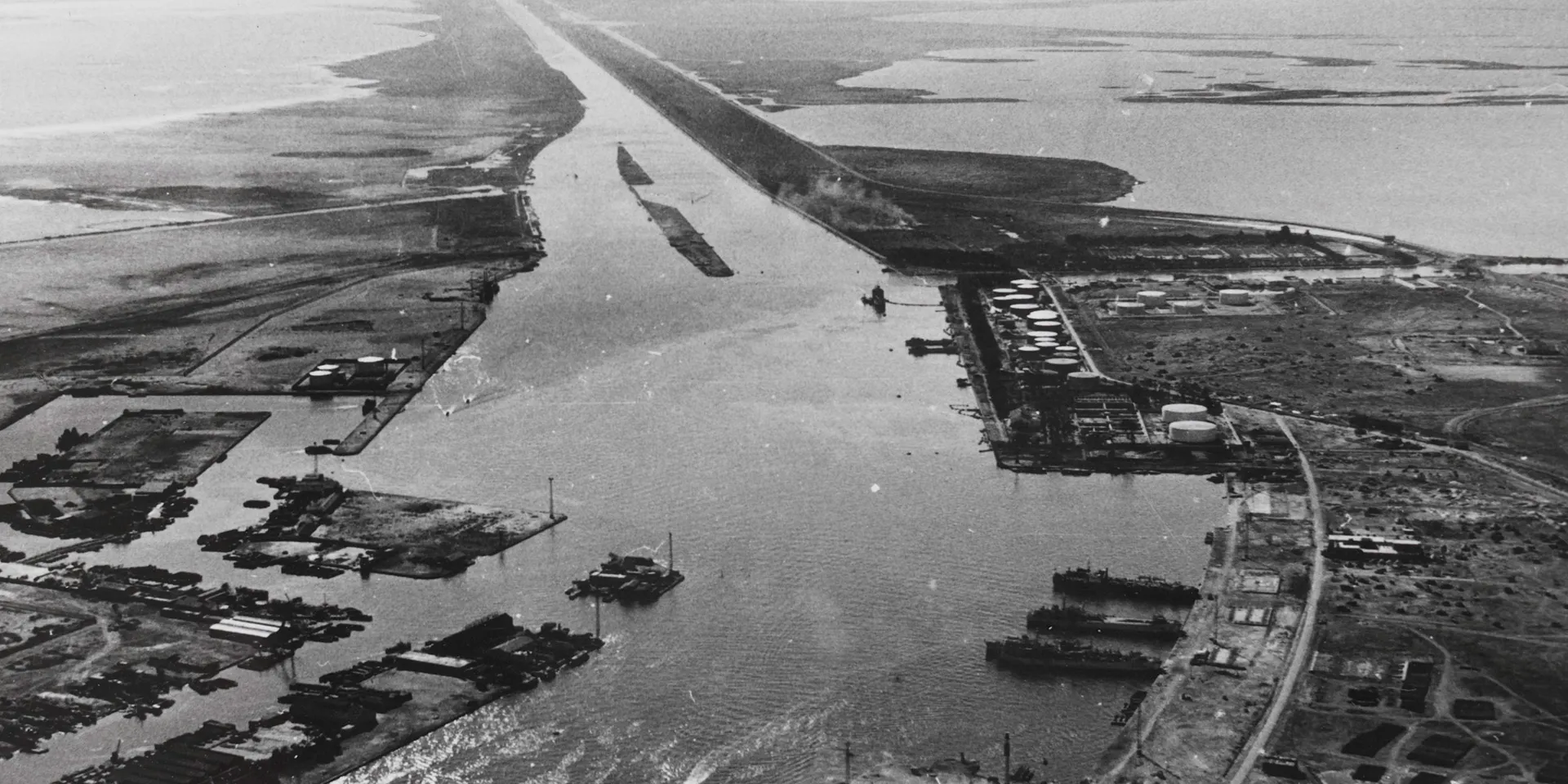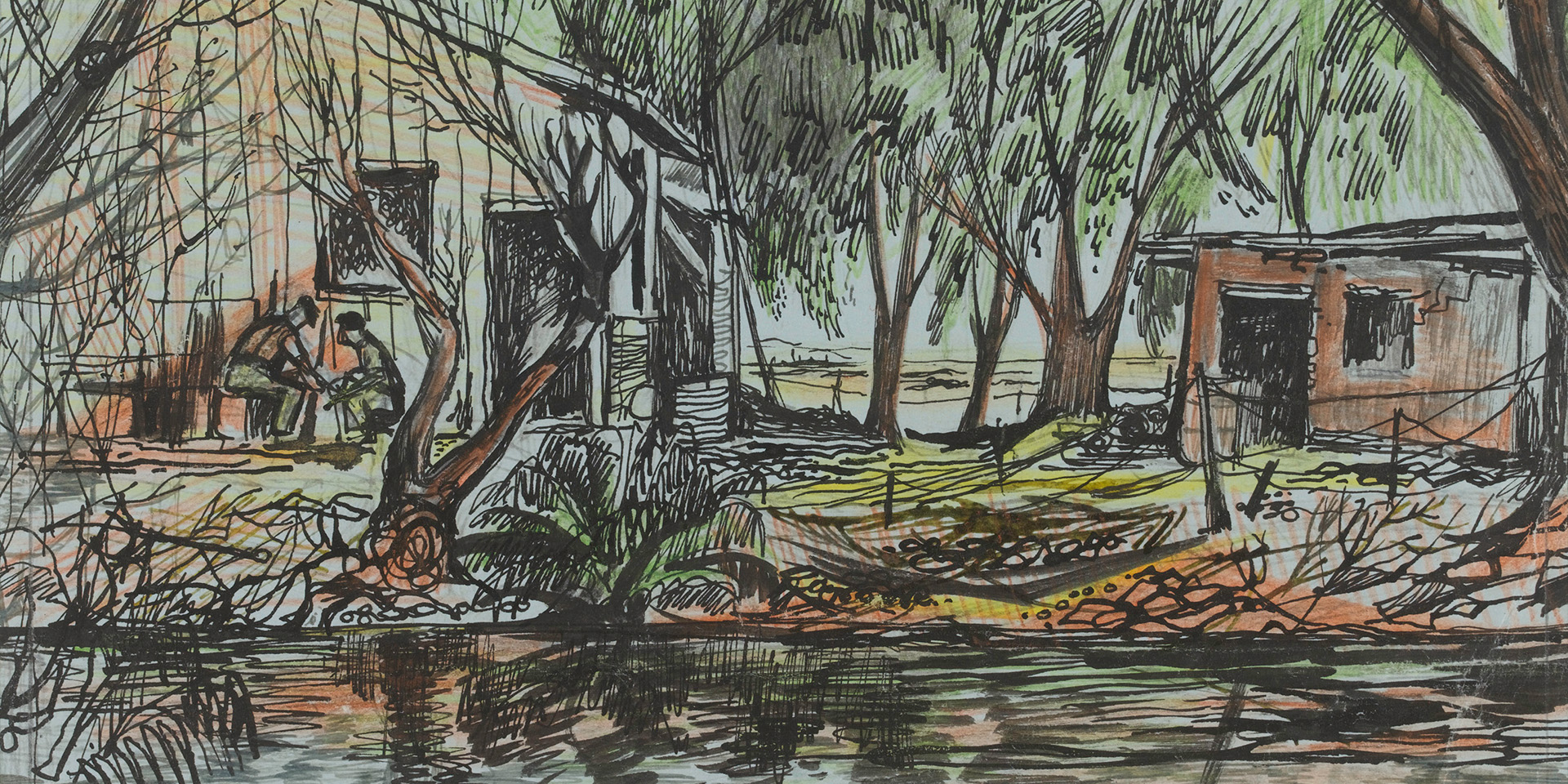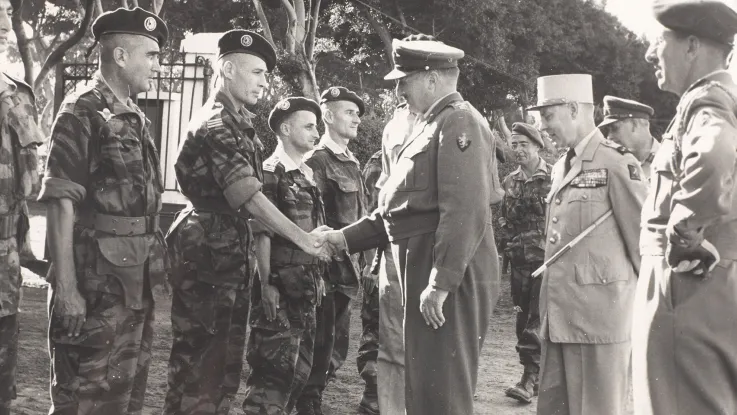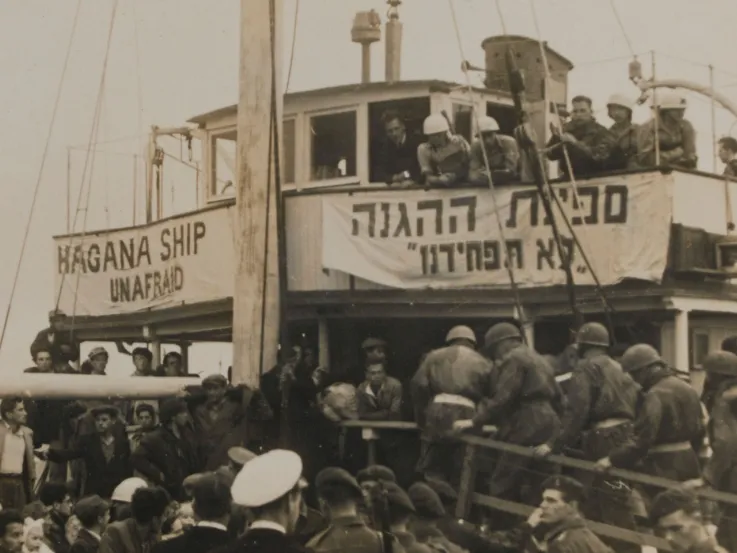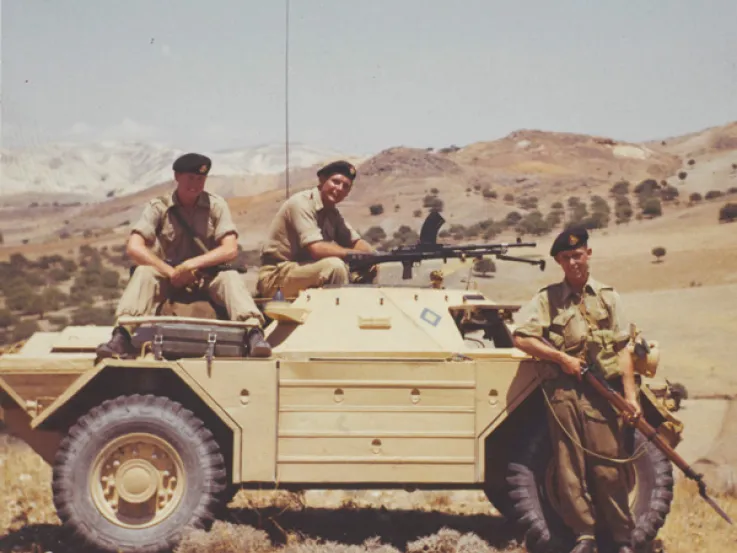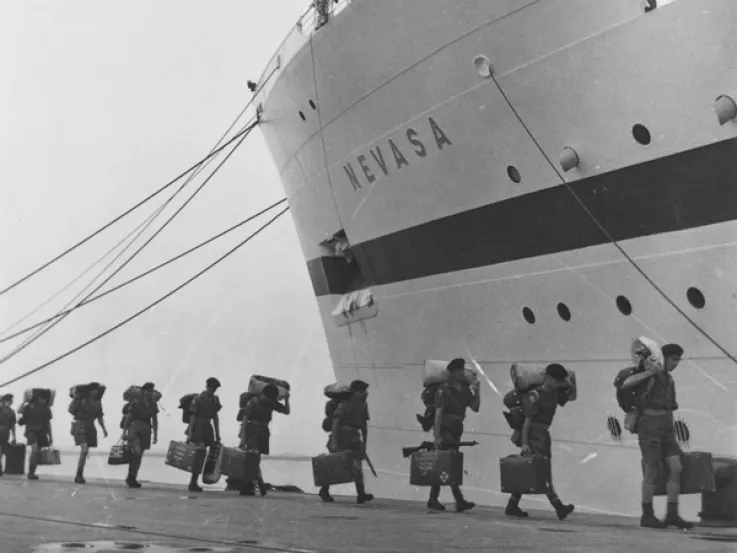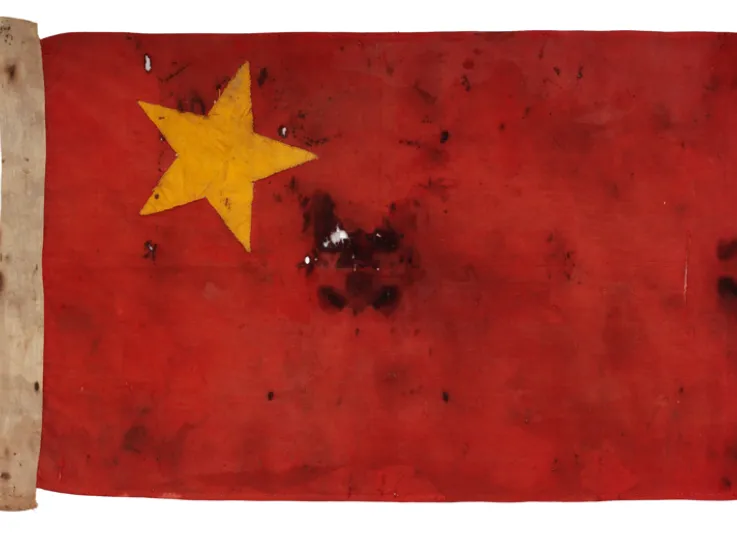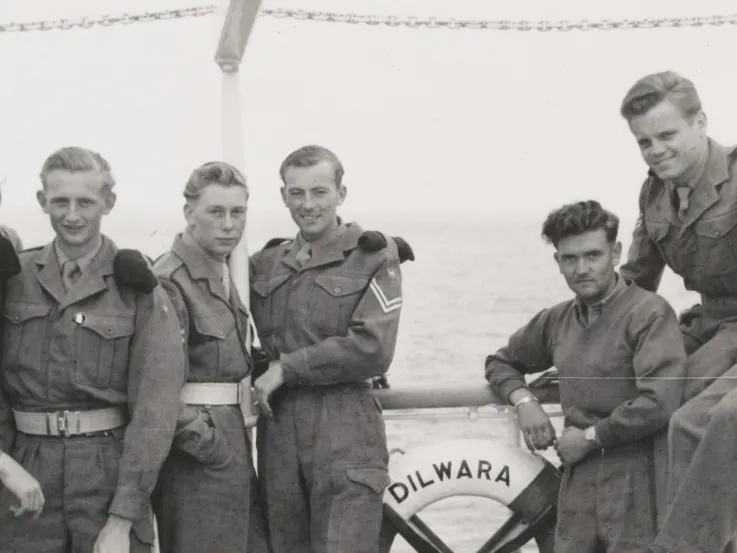British military presence
The Suez Canal was an economically and strategically vital route for both Middle Eastern oil and trade with the Far East.
Britain maintained a military presence in Egypt to protect the Canal under the terms of a treaty signed in 1936. However, Egyptian nationalists resented the British presence in their country. As early as 1945, riots had broken out and the first British soldier had been killed there.
British forces withdrew from the cities and concentrated in the area immediately adjacent to the Canal, known as ‘the Canal Zone’. Then, in October 1951, the Egyptian government increased pressure on the British, repealing the 1936 treaty.
Escalation
Between 1950 and 1956, violence escalated: 54 servicemen were killed and many others injured. An operation to disarm the police in Ismailia in January 1952 resulted in the deaths of 40 Egyptian paramilitaries, and the death and wounding of several British soldiers.
The 2nd and 3rd Battalions of The Parachute Regiment had cordoned off the town, while the 1st Battalion of The Lancashire Fusiliers stormed the Bureau Sanitaire on 25 January.
‘In January 1952 we were told we were going to Ismailia. Word had come through from Special Branch that… it was the police who were sniping at us. So we were going down to the Bureau Sanitaire, which the police were occupying. As we were going in the lad aside of me, he just went “ooh” and down he went. So I looked and all his side was out and he was dead… He was a new draft, he came over to Egypt and I think he’d done about six weeks’ intensive training in the desert and then he copped it. A nice lad. I don’t know what he was hit with, but we were told afterwards that the police were using dum-dum bullets so that would rip up rather then just going in. ‘I think the best way to explain how I felt was in a daze really, it was something I just can’t pinpoint how I felt, but I know I was shi*ting myself, I was frightened. I think anybody that says that they weren’t is telling lies. The old soldiers knew what it was about, but I was bewildered.’Private Eric Pearson, Canal Zone — 1951-52
Negotiations
By 1954, the garrison in the Canal Zone numbered 70,000 troops. This was difficult to supply without the support of the Egyptian government.
In April that year, Colonel Gamal Abdel Nasser established himself as the prime minister of Egypt. He was one of a group of Egyptian Army officers who had overthrown King Farouk in 1952, and had a strong nationalistic vision.
A negotiated agreement was reached on 19 October 1954 that brought an end to the occupation. Britain was given 20 months to withdraw.
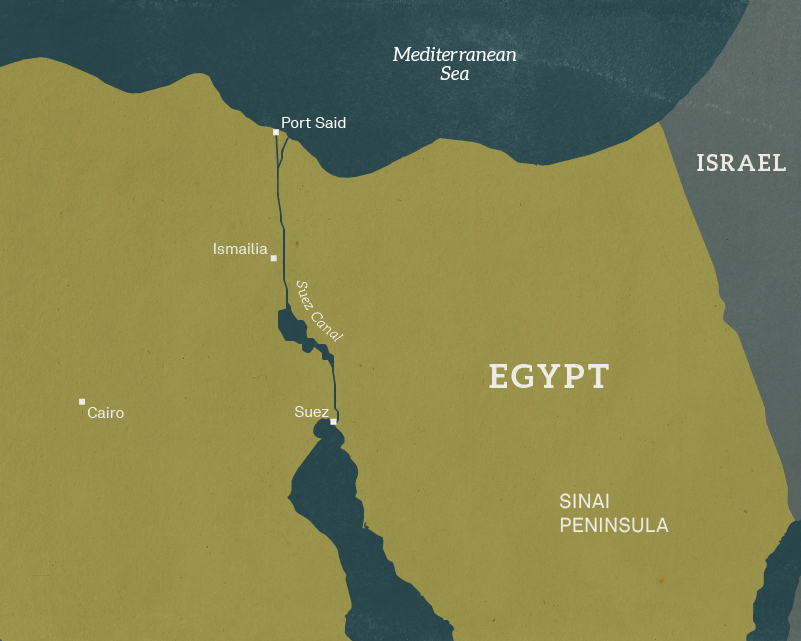
Map of north-east Egypt, 1954
Withdrawal
This agreement led to a reduction in tensions. British troops were once again able to leave the Canal Zone and move about more freely.
The first troops withdrew in May 1955. The last British unit to leave was 2nd Battalion The Grenadier Guards, which departed Port Said on 24 March 1956.
By the end of that year, British forces would be back in Egypt - albeit briefly - due to a political crisis over control of the Canal.
‘Gippy tummy’
Suez was an unpopular posting for both regular soldiers and National Servicemen. The climate was regarded as unhealthy, disease was common, accommodation poor and the local population overwhelmingly hostile.
‘It really was an open sewer - it was pretty filthy. If anybody fell in the Sweetwater Canal… they had to have the full treatment for rabies, injections in the tummy and everything. It was the early days of anti-mosquito spraying of their breeding grounds in canals, swamps etc and all the waters around were being constantly sprayed by the public health people. So nobody got the traditional malaria. But there was a lot of ‘gippy tummy’ [diarrhoea] - that was a fairly constant thing.’Second Lieutenant Kenneth Baker, Canal Zone — 1953-54
Recognition
In June 2003, following a campaign by former service personnel and their relatives, the British prime minister Tony Blair announced the award of a Suez Canal Zone Clasp to the General Service Medal.
This was for anyone who had served in the Canal Zone for a minimum of 30 consecutive days between 1951 and 1954.

General Service Medal 1918-62 with Canal Zone clasp awarded to Sergeant J Pringle, Royal Army Educational Corps


